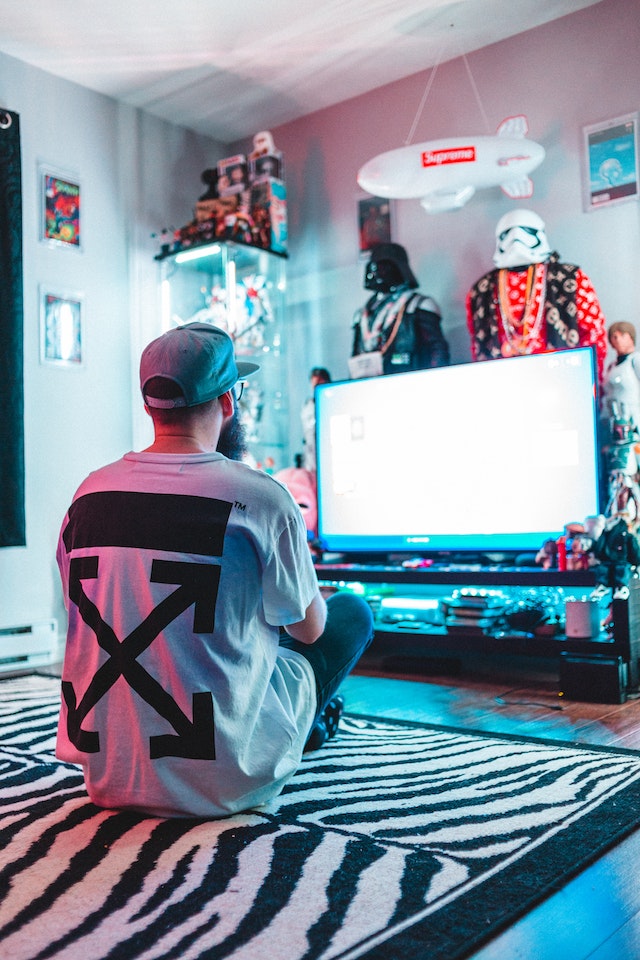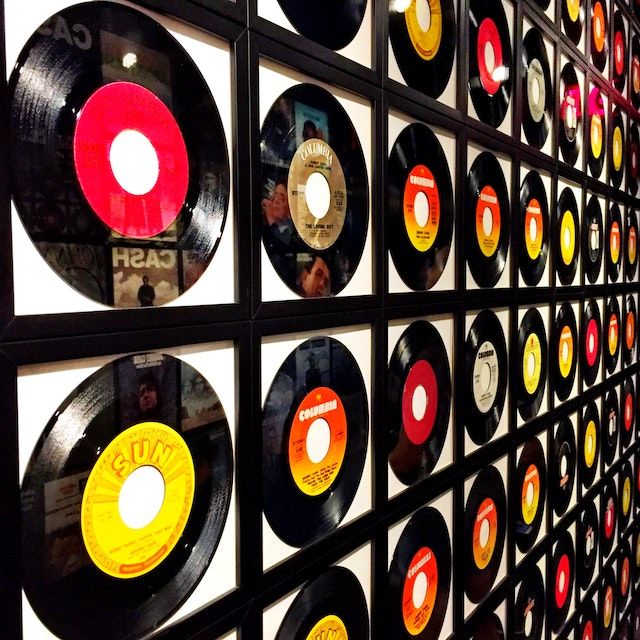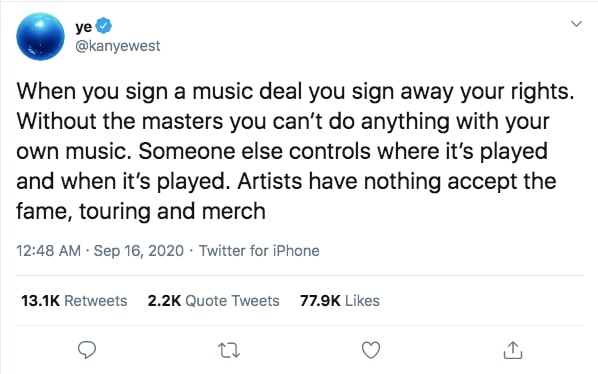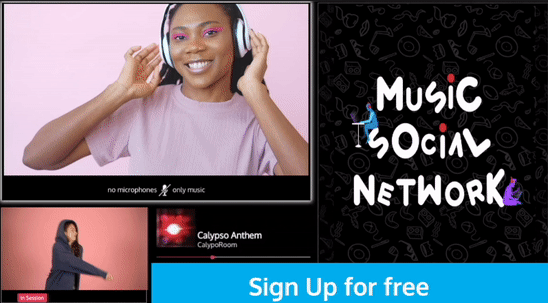Owning your masters: what does it mean for musicians

Table of content
Owning your masters: what does it mean for musicians - Introduction
The term "master" formerly referred to the master audio source or tape from which all vinyl, cassettes, and CDs were produced for sales and music distribution.
A "master" It's the song file you have on your computer if you've composed and recorded a track. When you own the recording's masters, you have complete legal authority over what is done with it and any money made from it.
New independent artists frequently sign contracts without fully comprehending the rights they are ceding. Let’s clarify things through this article.

KEY TAKEAWAYS
Understanding Masters in Music: The article highlights that in the music industry, "masters" refer to the original sound recordings of a song. Owning your masters provides you complete control over these recordings, including how they are used and distributed.
Difference Between Masters and Publishing Rights: The piece emphasizes that master rights and publishing rights are two distinct things. While master rights give you control over the original sound recordings, publishing rights pertain to the musical composition itself, like lyrics and melodies.
Control and Revenue Implications: Owning your masters means you can license them for various purposes like TV shows, movies, or ads, thereby collecting all the royalties. If you don't own them, you lose both control and the ability to fully monetize these usages.
Contractual Complexities: The article explains that contracts in the music industry are often complex and filled with terms that favor the record label. These may include clauses that specify that the label owns the masters "in perpetuity," or essentially forever.
Case Studies - Taylor Swift and Kanye West: The article discusses how Taylor Swift and Kanye West are high-profile examples of artists battling for control over their masters. Swift is re-recording her albums to own new masters, while West has publicly criticized Universal Music Group for controlling his.
Legal Advice is Crucial: Lastly, the article suggests that because of the complex legalese in contracts and the significant implications of master ownership, it's crucial for artists to seek specialized legal counsel. Doing so can help artists understand and potentially negotiate more favorable terms.
What does masters mean in music?
In the music industry, the term "masters" refers to the original sound recordings of a song. It is the high-quality audio file that acts as the source for all subsequent copies, whether they be vinyl records, CDs, or digital downloads.
Owning the masters gives you complete control over that particular sound recording; you get to decide how it's used and where it's distributed.

This is distinct from publishing rights, which pertain to the musical composition itself (the lyrics, melody, etc.), and not the specific recording.
Control over the masters is often a contentious point in contracts between artists and record labels. Labels usually own the masters in traditional deals, which limits the artist's control over the sound recordings and how they earn money from them.
To understand the current state of the music industry and why owning your masters is crucial, check out this article on the state of the music industry.
Differences between publishing rights and mater rights
The music industry can be confusing. A song generates 2 different rights: publishing rights and master rights.
Those rights refer to completely different things and are treated entirely separately when it comes to ownership, royalty payments, and legal disputes.

The difference is that a single musical composition (like lyrics) can feature in hundreds of different sound recordings (covers, remixes, etc). Meanwhile, a specific sound recording is unique.
The publishing rights related to a specific “musical composition” are generally owned by the original writer or composer of the song (or publisher if any and depending the publishing deal in place).
Owning your masters, on the other hand, means you own the copyright to the original sound recordings of your music. The copyright of the sound recording is generally owned by the artist or record label that they are signed to.
If you're new to the music industry and are looking to understand it better, you may find this guide on how to get into the Music Industry useful.
Owning the master: what does it mean
Owning your master recordings offers you the freedom to use them however you see fit as an artist, maximizing your earning potential. You have total control over your music with this.
If your master belongs to someone else, such as a record label, a music producer, or a sound engineer, they have the right to sell the recording and collect all the royalties.

If you don't own the masters, you lose control over how and where the recordings are used, as well as your right to the entire amount of royalties from their use.
The masters of all songs produced as part of a record deal are frequently owned by the label rather than the artist in typical music industry contracts.
Legal aspects and contractual cautions
Understanding the legal dimensions of owning your masters is crucial for artists at any stage in their careers.
Contracts in the music industry are notoriously complex and often filled with legalese that can be difficult to understand without specialized knowledge.
Typical clauses regarding master rights might include terms that specify how long the record label owns the masters, what geographical regions are covered, and what specific usages of the masters are allowed.
These terms often heavily favor the label. For example, it's not uncommon for contracts to state that the label owns the masters "in perpetuity," meaning forever, and "throughout the universe," essentially covering all conceivable platforms and territories.

Because record labels usually have the advantage of legal expertise and bargaining power, artists should strongly consider seeking their own legal counsel to navigate these complexities.
Having an attorney who specializes in entertainment or copyright law can help artists better understand what they are signing and negotiate terms that are more in their favor.
If you're interested in understanding how record labels make money, you may want to delve deeper into the financial workings of the industry.
Case studies: Taylor Swift and Kanye West
Taylor Swift
The Taylor Swift controversy is a fascinating case study in disputes concerning master ownership. Swift has accused Scooter Braun of harassing and selling her original record label, Big Machine, to him.
Swift has begun to re-record her first six studio albums in order to rectify Braun's control over the masters of her older music; in doing so, she generates new masters over which she has full ownership and the authority to license for commercial usage.
Kanye west
Media coverage of Kanye West's attempt to reclaim his masters has been significant. He has raged in front of the public about Universal Music Group's control over his first six albums, even going so far as to tweet out his original recording contracts.

The use of these antiquated contracts may change as a result of West's mission, or at the very least, it may shed light on the situation for upcoming artists who have not yet signed a record deal.
For those interested in understanding the complexities and challenges artists face, you might find it helpful to read about why musicians fail.
The role of emerging platforms like CalypsoRoom
In a landscape that’s quickly embracing digital possibilities, platforms like CalypsoRoom are making waves by providing a unique space for artists and listeners alike.
CalypsoRoom is a platform where people can listen to music together in real-time while connected by webcam.
This ensures a level of authenticity and control that is often missing on other platforms. It’s an intriguing option for artists who own their masters and are looking to reach a communal and engaged audience.
If you're interested in taking part in this new avenue for music sharing and have ownership over your masters and publishing rights, you can learn more and submit your tracks here.

Owning your masters: what does it mean for musicians - Conclusion
You're better off spending some time talking to someone to understand the agreement and negotiate a contract that works for you. Before signing any piece of paper, deeply analyze the following questions:
Does the label make marketing and PR investments? How long could you potentially be bound by the agreement? What number of choices does the label offer? How long will they be able to use your music? Is it worthwhile to transfer your rights now when you may start your career on your own?
As with everything in life, choosing a record label or remaining independent has its advantages and disadvantages.
For more insights and expert advice on navigating the music industry, be sure to visit our blog homepage.
And, lastly, for a hands-on experience and a fresh way to engage with music, give CalypsoRoom a try.
It's a unique platform where artists, managers, and fans can connect through live webcam sessions and share music in a whole new way, provided you own your masters and publishing rights.
Don't just read about the industry, be a part of it.
Let the music play,
The CalypsoRoom Team
Frequently Asked Questions (FAQs)
What does owning your masters mean in the music industry?
Owning your masters means you have control over the original sound recordings of your songs. This allows you to dictate how the music is used, distributed, and monetized.
How does owning your masters impact musicians' control over their music?
Owning your masters gives you the freedom to license your music for various uses like TV shows, movies, or ads. You also decide how and where the music is distributed, ensuring you have creative and financial control.
Why is owning your masters considered important for artists?
Owning your masters is important because it maximizes your ability to earn money from your music. It also gives you creative control, allowing you to decide how your music is used and exploited.
Can owning your masters affect your earnings as a musician?
Absolutely, owning your masters allows you to collect all royalties generated from the music, which can significantly increase your earnings. You also have the power to license your music for various opportunities, directly affecting your income.
What are the differences between owning masters and publishing rights?
Owning masters refers to control over the original sound recordings, while publishing rights pertain to the musical composition itself (lyrics, melodies, etc.). Masters cover the specific recording, while publishing rights can apply to any rendition of the song.
How can musicians regain ownership of their masters?
Musicians can regain ownership through contract re-negotiation or by buying them back from the current owner. However, this often requires substantial financial resources and legal expertise.
Are there successful musicians who own their masters?
Yes, artists like Taylor Swift and Chance the Rapper are examples of successful musicians who own or have taken steps to regain ownership of their masters. This has allowed them greater creative and financial control over their work.
What challenges can musicians face when trying to own their masters?
Musicians often face financial and contractual hurdles when trying to own their masters. Labels usually have more negotiating power and legal expertise, making it difficult for artists to secure favorable terms.
How do record labels influence master ownership for artists?
Record labels often retain ownership of masters in traditional music contracts, giving them control over distribution and licensing. This limits the artist's ability to directly earn from and control the use of their music.
back
Written by CalypsoRoom Editorial Team
The CalypsoRoom Editorial Team is a skilled and diverse group of writers, researchers, and industry specialists who have access to Calypso's data and information in order to give you broad knowledge about the music industry as well as helpful advice to help you manage your music and dancing career.
Updated August 2023
Company number: 681223
James's Walk 31, Dublin, Ireland
contact@calypsoroom.com
+353 (89) 435 8928




